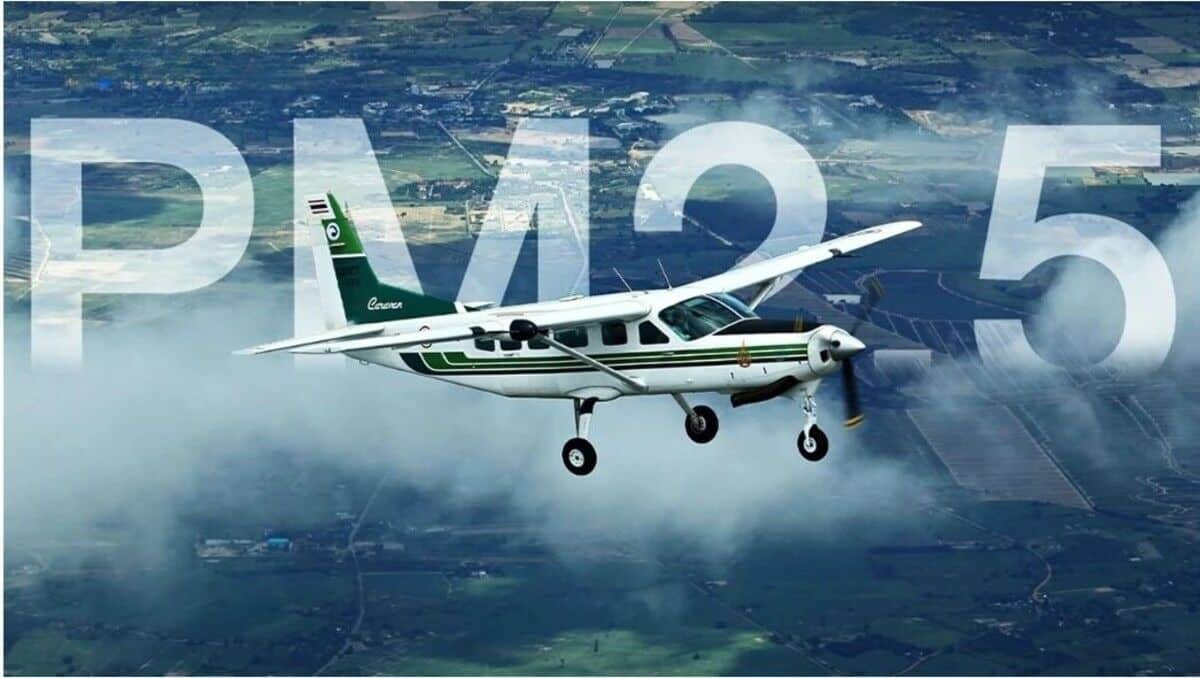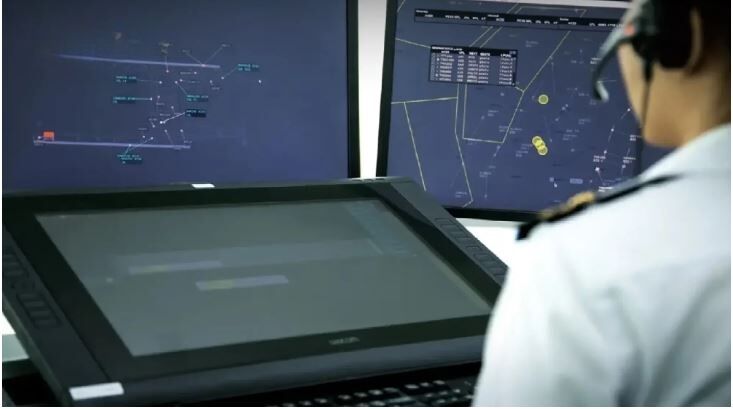Pollution battle: Flights fight PM2.5 pollution in Thailand

Thailand is taking its fight against air pollution to the skies, deploying special flight operations to tackle the dangerous PM2.5 dust particles. Deputy Transport Minister Manaporn Charoensri announced that the innovative operations have already improved air quality in key regions, including Bangkok, the central region, and the upper north.
Launched by Aeronautical Radio of Thailand Ltd (AEROTHAI), the mission began on December 1 last year in Bangkok and surrounding areas, expanding to Chiang Mai, Chiang Rai, Lampang, Tak, and Mae Hong Son provinces the following day. According to AEROTHAI, these efforts have successfully reduced particulate matter smaller than 3 microns, with operations set to continue until the pollution subsides.
“AEROTHAI’s specialised flights use cool water and dry ice to lower the temperature of atmospheric layers at altitudes of 3,000 to 10,000 feet,” explained AEROTHAI president Nopasit Chakpitak.
Covering 20 square kilometres per operation, the flights create atmospheric channels to disperse pollutants, particularly in densely populated urban areas.
The Royal Rainmaking Department is also playing a key role, operating three centres in Bangkok and the central region, and one in the north. A fleet of 11 aircraft has been deployed, ensuring continuous operations to improve air quality, reported The Nation.
The initiative has garnered significant support from multiple sectors. Bangkok Industrial Gas Co Ltd contributed 300 tonnes of dry ice, while the Bangkok Metropolitan Administration (BMA) is aiding coordination efforts.
“This collaborative approach is essential to addressing the PM2.5 crisis and enhancing air quality for residents.”

In a related report, to tackle Bangkok’s escalating air pollution, city officials inspected public buses for black smoke emissions at the Bangkok Mass Transit Authority’s (BMTA) Sathuphradit Depot on Tuesday, January 14. The initiative, led by Phonprom Wikitset, Advisor to the Governor of Bangkok, and Prapat Luangsirinapa, Director of the Environmental Office, aimed to address the city’s fine particulate matter (PM2.5) crisis.
Latest Thailand News
Follow The Thaiger on Google News:


























